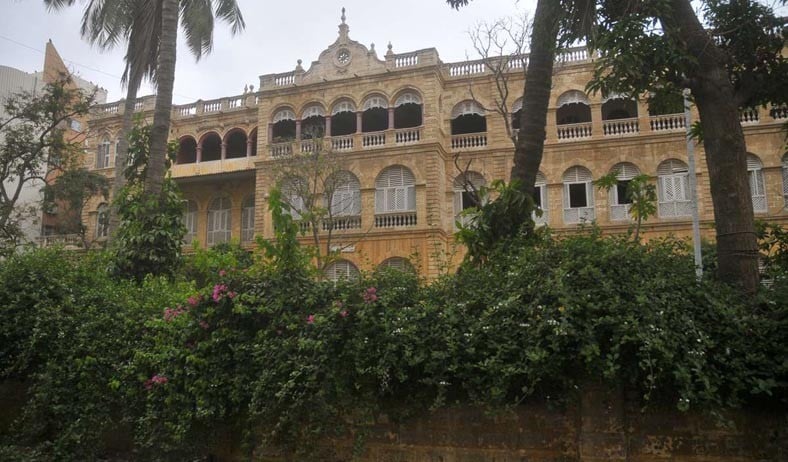
Karachi’s Bristol Hotel, once a hub of activity and socialising, has become a sad reminder of a bygone era

Aimlessly skimming through tv channels on a Sunday afternoon, I paused, trying to absorb the familiarity of the set displayed on the screen. The vintage tiles formulating an array of colourful patterns on the floor, the criss-crossed jade wooden jalis invoking a sense of deja vu.
Alas, I realised that the drama was set in none other than Bristol Hotel, Karachi. The same Bristol Hotel which serves as a backdrop to some of my mother’s childhood portraits, the same Bristol Hotel which was known for its May Queen Ball and expatriate guest list.
Bristol Hotel was one of the biggest hotels in Karachi in the pre-partition days. It was popular post-partition as well, up until the prohibition period sanctioned by Zulfikar Ali Bhutto. It is currently under the patronage of Tariq Rizvi and his family. Rizvi’s father, Ale Niaz Rizvi, acquired the hotel in the early 1950s from a Parsi businessman for a sum of Rs 60,000.
The Bristol Hotel in its glory days was known to host many foreigners, including many Portuguese officials that were ousted from Goa. Among its notable guests were Muhammad Ali Jinnah, Khan of Kalat and high-ranking army officials of the time. There is also a rumour that Donna Reed, an American actress, stayed at the hotel.
The Bristol Hotel, with its luxurious and kempt garden, embellished bar and spacious and extravagant rooms was the main locale for the well-heeled of society, a place where people spent hours on end playing cards and socialising. "The rooms were large and airy due to the high ceilings but what I remember most distinctly is the large sub-continental bed with a canopy surrounding it stationed in the middle of the room," recounts Aftab Hussain, who frequently resided at the Bristol Hotel. Each room had a stained glass window, and doors opening up into the spacious hallways.
One of the first three-storey buildings, the Bristol Hotel’s Saturday night disco and new year party were prominent events in the Karachi social scene.
Seeing the two dimensional portrayal of Bristol Hotel on tv, I decided I wanted to see Bristol Hotel in situ, and off I went navigating the streets of Karachi to find my way to it. Although it was renowned in its days of glory, Bristol Hotel now lives an inconspicuous life, nested neatly besides the railway track extending from the Cantt station.
As I drove up towards the building, I noticed the faded jade woodwork, the carved balusters on the facade, the majestic entrance. I could immediately picture the extravagance and opulence because of which Bristol Hotel was once celebrated.
Presently, the Bristol Hotel houses Rizvi’s family and is guarded by stray dogs.
The hotel is now circumscribed by apartment buildings, tall and white, which have entirely swallowed its grandeur. Clusters of garbage decorate the low boundary wall. The once magnificent and meticulously kempt garden, which was often the site for wedding celebrations, is now a dilapidated mess of shrubs and thorny bushes. The once grand wooden staircase seems spineless and fragile, the floor uneven and sloping. The state of neglect and disintegration is evident.
What was in the past a palatial structure now seems like a shadow of a world bygone. When I see Bristol Hotel, enveloped amidst the encroaching urban milieu, it seems like a majestic reminder of the past -- and it is definitely not the only one in Karachi. Currently, the multifarious examples of the dwindling conditions of colonial architecture begs the question whether we have turned our back towards our heritage and history in the yearning and constant quest for development and modernisation.
Looking at the rapidly developing urban landscape, it is important to recognise the importance of heritage architecture and its role in preserving the cultural context. It is when we start to discover these glittering remnants of the past that we begin to take ownership of our history and culture.
Places such as the Bristol Hotel offer a unique platform as they afford the opportunity to tangibly interact with our past, these buildings and spaces must be rescued and preserved.